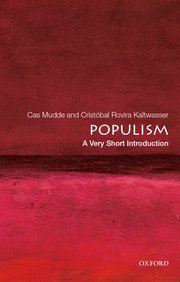 A new generation of rebels is rising in Europe, this time from the right, with echoes of the huge protest movements of 50 years ago, argues Ivan Krastev, the chairman of the Center for Liberal Strategies, a permanent fellow at the Institute for Human Sciences in Vienna and the author, most recently, of “After Europe.”
A new generation of rebels is rising in Europe, this time from the right, with echoes of the huge protest movements of 50 years ago, argues Ivan Krastev, the chairman of the Center for Liberal Strategies, a permanent fellow at the Institute for Human Sciences in Vienna and the author, most recently, of “After Europe.”
The populist parties of the right today are, above all, cultural parties, he writes for The New York Times:
They see their position of power as an opportunity to shape national identity, to get the historical narrative right. They are not much interested in changing taxation or welfare. Far more important to them is how society relates to its past and how children are educated. The debate of immigration is, above all else, an opportunity to define who belongs and could belong to a national political community. But while in individual countries the nativist revolution takes the form of a struggle between liberals and conservatives, on the level of the European Union it is experienced as a conflict between Europe’s West and Europe’s East. More precisely, it’s a conflict between two versions of conservatism.
“In fact, they differ in much the same way 1968 in Western Europe differed from ’68 in Eastern Europe. In the West it was about the sovereignty of the individual. In the East it was about the sovereignty of the nation,” argues Krastev, a regular contributor to the National Endowment for Democracy’s Journal of Democracy. RTWT
The growing conflict between the original Western member states of the bloc and the newer members in Central and Eastern Europe is the main threat to the cohesion and survival of the European Union. It is not a simple clash, but a multibannered one of identity, history, values, religion and interpretations of democracy and “solidarity,” The Times adds.
“The history is part of our identity, which people in other parts of the world don’t understand,” said Slawomir Debski, director of the Polish Institute of International Affairs. “What is it to be a Pole? We are the nation that survived World War II, and were the victims of both totalitarian systems.”
But populism surreptitiously may be providing its own antidote, argues Alan Draper, a government professor at St. Lawrence University. Populist parties mobilize individuals who previously were either alienated or passive politically. Impatient with democracy’s weaknesses, they may discover that politics and conflict are inescapable through their own participation, he writes for The Hill:
 The more politically engaged they become, the more they are likely to be required to make the kind of unsatisfying compromises they once decried, to join in the same ugly debates they once found so distasteful, and to reconcile themselves to the slow, even halting pace of democratic decision-making they once found so exasperating. Populist parties may take advantage of the immaturity of citizens who think they can have democracy without politics. But in the very process of mobilizing them, exposing them to the real world of politics, it may contribute to their civic maturity.
The more politically engaged they become, the more they are likely to be required to make the kind of unsatisfying compromises they once decried, to join in the same ugly debates they once found so distasteful, and to reconcile themselves to the slow, even halting pace of democratic decision-making they once found so exasperating. Populist parties may take advantage of the immaturity of citizens who think they can have democracy without politics. But in the very process of mobilizing them, exposing them to the real world of politics, it may contribute to their civic maturity.
The lesson of history is not only that globalization and the populist backlash are tightly linked. It is also that the bad kind of populism spawned by globalization may require a good kind of populism to fend it off, argues Dani Rodrik, a professor at the Harvard Kennedy School. The illiberal politics of a strategy drawing on narratives that exploit prevailing ethno-nationalist prejudices undermines democracy, he writes for The Times:
A populism of this kind can seem like a frontal attack on the economic sacred cows of the day — just as earlier waves of American populism were. But it is an honest populism that stands a chance of achieving its stated objectives, without harming fundamental democratic norms of tolerance and equal citizenship.







